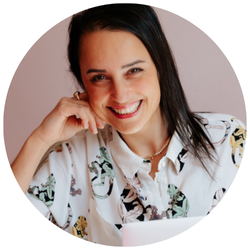Every time we take out our smartphone, we engage with the same unconscious dilemma: to consume or to create.
Think about it — you could do a million things with a phone. You could compose the next Grammy award-winning piece of music while commuting. You could write a Pulitzer Prize-winning book while queuing for coffee.
But almost always, we end up choosing the same thing: consuming other people's videos, photos, posts, and thoughts.

The Ease of Consumption vs. the Difficulty of Creating
Whether it’s a Netflix series, a video game, a podcast, or just scrolling through the millions of Instagram or TikTok videos available, when we find ourselves bored and fall back on consuming some type of media, the excuses are always the same:
"I deserve it.” “I've been working so hard.” “Just this one and then I'll start working.” “It's only five minutes.”
That is your brain at work, trying to find good reasons for your irrational choices.
That’s because the brain loves consistency and ease. It's "a consistency machine," as Nobel Prize-winning Daniel Kahneman calls it.
To be fair, consuming is not bad in and of itself. On the contrary, it gives us a way to disengage and rest from the energy-consuming self-control process needed to focus and behave the way society tells us we’re supposed to. This disconnect is useful for a limited time — and as long as we know how not to get trapped.
The problem is that the media and platforms we use today are specifically designed to keep us in that loop as long as possible. Simply because while we’re on those platforms, those platforms are making money. Every day, we face a huge amount of content created, on purpose, to keep us hooked.
And there's a biological process keeping us hooked. This is all based on the dopamine reward system, which creates addiction similar to drugs and alcohol.
Dopamine inhibits self-control, so when we are caught in the loop, it's challenging to exit by using merely self-control.
There's a biological process keeping us hooked. This is all based on the dopamine reward system, which creates addiction similar to drugs and alcohol.
On the other end of the spectrum, we love to do creative things, like writing and art, so why is it so hard to get started?
Creating something from nothing — whether that’s writing, painting, or really any kind of problem-solving activity — requires self-control to begin (and keep going), as well as other skills and abilities that require much more mental energy. And the wise brain loves to save energy for when it thinks it is needed.
As the famous stand-up comedian Jerry Seinfeld once said about writing: it's the most difficult thing in the world. You have to summon a lot of willpower and energy to keep doing it every day. It doesn't happen easily, even if you love it.
To summarize the core of the issue: consuming and creating have two different "access barriers," as we'd call them in business, making one easier than the other.
We don't need too many resources to start consuming, and it gets more and more addictive as we keep going. On the contrary, creating is harder to initiate — and keep up.
To summarize the core of the issue: consuming and creating have two different "access barriers," making one easier than the other.
How to Exit the Consumption Loop
OK, so we understand why we find ourselves scrolling or watching TV so often. But how do we break through that addiction to find a healthy balance between creating our own work and consuming without getting trapped?
Here are a few tips:
1. Plan ahead.
Plan your day with as many details as possible, guaranteeing space for what's essential to you. Planning is the best way to avoid picking up your phone “just for a second.”
2. Keep a "read-later" list.
Save the content you want to read or watch on one list so that when you have time to "waste," you know what to consume without getting carried away.
3. Increase the friction.
Increase your “consumption friction” by removing social media from your phone and using only the desktop version. This will make it more challenging to enter the loop of random consumption and get stuck there.
4. Think long-term.
Every time you are about to start scrolling, try to visualize a clear image of your future self. For example, imagine a fulfilled version of yourself holding the book you wrote. Fulfillment is better than excitement.
5. Ask yourself: “What kind of person am I becoming by consuming this?”
And how will it make you feel? A lot of media these days is designed to infuriate, unsettle, or otherwise solicit a reaction. Before clicking on that video, evaluate whether that’s really what you need affecting your emotions today.
6. Start the morning with a “closed system.”
That’s what Thibaut Meurisse calls it in his book Dopamine Detox — a system without any access to useless stimuli. Don’t hop on Instagram before you get out bed. Get your day started without your phone in your hand, and you’ll feel much better throughout the day.
7. Constantly share your work.
Create excitement for your writing or artwork by sharing it with others. Once other people know you love to do these things, you’ll feel a new accountability and enjoyment for it.
Overall, if you start the day with a good plan, a clear idea of what's essential on your to-do list, and distraction-free technology, you are building the foundations for the most productive and fulfilling day.





























